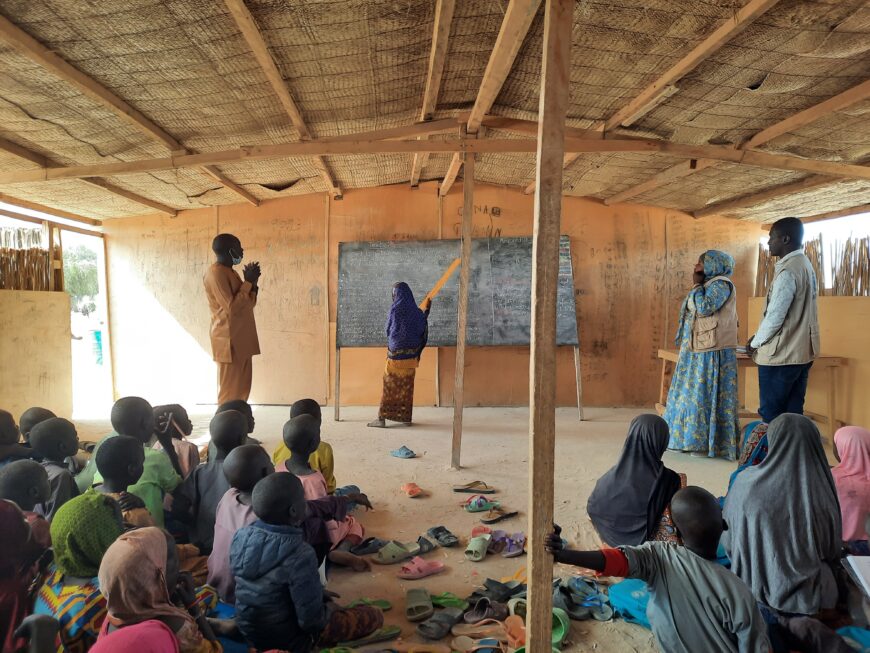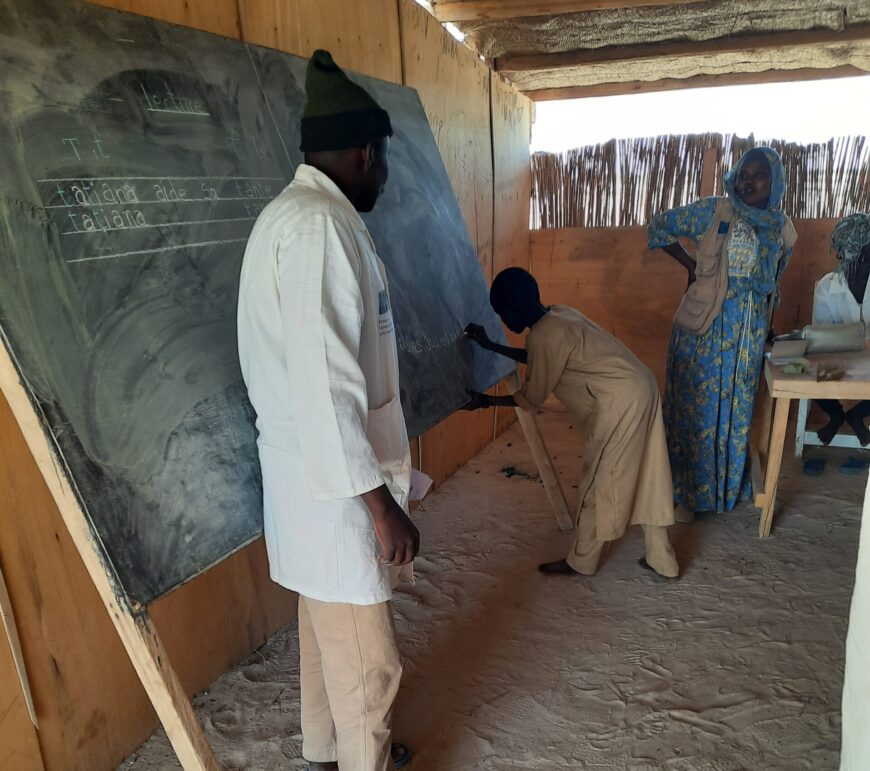For the third year in a row, more than a thousand displaced children in the Fouli department of Chad have been able to go back to school in one of the schools set up by the NGO Acted. Since 2021, this project has enabled more than 3,000 pupils to go to school, the majority of them being girls.
The department of Fouli is a remote area of Lake Chad province. In 2015, the arrival of an armed group in the area created continuous waves of population displacement in the region. The people fleeing the group’s violence are forced to abandon their economic activities and possessions. They find themselves destitute and exposed to hunger and lack of access to basic services such as water, hygiene and sanitation.
Children’s schooling is interrupted, and government services in the area are already struggling to meet all educational needs. Finally, certain cultural norms tend to limit the schooling of young girls in Chad. This is particularly the case in Fouli, where the traditional role of young girls often forces them to stay at home and help their mothers with household chores. Sometimes they are also forced to marry at an early age, which has the effect of interrupting their studies.
Enabling children excluded from the education system to go to school
The project, which began in 2021, has provided school infrastructure at seven sites for displaced people in the Lake Chad province. Water points and latrines have also been built to ensure access to water and good hygiene within the schools. A total of 30 teachers were trained by the local authorities and Acted to teach in the new schools. Thanks to this project, more than 3,000 children have been able to return to school.

This is the case of Fatime and Youssouf, who both attend school at the Magui site for displaced persons. Fatime and Youssouf had to flee their village with their family in 2022 because of an attack by an armed group. After a journey of several days on foot, they reached the Magui site where they were quickly able to join the local school to resume their education. At the end of the 2022-2023 school year, the children had to sit an exam: Youssouf finished 1st in his class and Fatime 6th, which enabled them to move up to the next class.
The pupils, in CM1 and CM2 respectively, were able to start their second school year at the school in October 2023. The curriculum follows that defined by the French Ministry of Education, and includes lessons in arithmetic, reading, science and sport. At lunchtime, the children benefit from a school canteen service provided by the World Food Programme. They appreciate the food they are served and are able to eat their fill. The school also has latrines and a hand-pumped borehole built during the project to enable pupils to study in the best possible conditions. The pupils feel safe at the school, and know that the teaching staff are ready to support them in case of difficulty.
Later, Fatime would like to become a doctor and Youssouf a teacher.
Teachers at the heart of the school project
Keilo Moussa, the headmaster of the Magui school, is originally from southern Chad and has over ten years’ experience in teaching. He joined Acted at the start of the project in 2021 and is teaching at Magui school for the second year running. Before the start of each school year, he and the other teachers in the project received a week’s teacher training from the provincial education delegation in order to build their capacity. This training was supplemented by sessions on child protection and psychological first aid.
In my opinion, this project has had a very positive impact on the lives of displaced people. Since the activities began, there has been a visible improvement in the community. Now more people know how to read and write, and everyone knows about school and how important it is for their children's future.
He believes that children have the necessary skills to succeed at school: « they are highly intelligent and motivated. Last year, the exam pass rate was over 90%. ».
Keilo Moussa hopes that the project will continue and that as many children as possible will benefit from quality education.

I would like our work to bear fruit and for the students in turn to be able to take up the baton and continue to pass on knowledge and help their community by becoming teachers, for example.
Involving parents in their children's education
In each of the schools created at the start of the project, Acted has also formed Parents’ Associations (PA) and Pupil Mothers’ Associations (PMA), which help the teachers to run the schools effectively. These associations are made up of 18 representatives (nine women and nine men) elected by the community. Thanks to this mechanism, parents are actively involved in their children’s schooling. In this way, Acted ensures that the members of the community are fully involved in the success of the project and that they have the keys to sustaining the achievements of the action once the programme is over.
Apart from the time she spends at school, Houma*, a member of the Magui school’s AME, goes off to sell faggots at the Kiskawa market, nine kilometres away.
This activity allows me to generate income from time to time. I use the money to buy maize and rice for my family. When the income is good, I buy clothes and exercise books for the children.
Houma explains that her children’s education is very important to her and she tries as far as possible to ensure that her children can study in good conditions.
The number of children in the sites who can read and write has risen sharply since the start of the project, which is now entering its third year. However, challenges remain. The lack of funding for the 2023-2024 school year is particularly affecting the project. For example, Acted is not in a position to provide schools with sufficient school supplies, and parents often do not have the means to buy the missing supplies themselves.
Ultimately, Acted hopes that the community will be able to take over the management of the schools with the support of the relevant local authorities. However, parents lack the means and opportunities to generate sufficient income to contribute to the upkeep of the schools or to pay for community teachers. There is no prospect of the state taking over education services in the coming years, so it is essential to build up the resilience of the people in this remote region of Chad in order to ensure inclusive and sustainable community education provision.
*this person’s name has been changed to preserve their identity